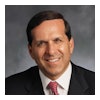
The U.S. No Surprises Act (NSA), which took effect in January, aims to protect patients from unexpected hospital bills. It also directly affects oral and maxillofacial surgery, according to a perspective published April 9 in the Journal of Oral and Maxillofacial Surgery.
Oral and maxillofacial surgeons should better prepare themselves for enforcement of the law and support the spirit of it by taking several steps, including assisting patients in responding to surprise bills, the authors wrote.
"Moving forward, it is important for the field of OMS (oral and maxillofacial surgery) to educate surgeons not only about surprise billing and the NSA, but also the evolving landscape of medical and dental insurance," wrote the authors, led by Dr. Tim Wang, MPH, an OMS resident at Massachusetts General Hospital and a clinical fellow at the Harvard School of Dental Medicine in Boston.
About the law
Evidence suggests that as many as 1 in 5 emergency department visits result in a surprise bill. A common example of surprise billing is when a patient goes to an emergency department at an in-network hospital but is treated by an out-of-network doctor. These patients, who have no control over the provider in this situation, can end up with surprise bills.
For the last several years, legislators in the U.S. have been working to end surprise billing. With bipartisan support, lawmakers passed the No Surprises Act, and it was signed into law in late 2020. The new law protects patients from surprise bills for emergency and nonemergency medical services by preventing doctors and hospitals from charging them more than the in-network price, which is designated by insurance companies.
Under the law, providers must submit bills to patients' insurance plans, which will reimburse them for the in-network amount. An insurance company can send the patient a bill for the appropriate amount that they would need to pay if they received treatment from an in-network provider. Insurers must follow this sequence, which means they can no longer send surprise bills to patients.
Additionally, the law prevents providers from requesting patients to waive their protection against surprise billing for nonemergency and emergency services, like imaging and anesthesia. It also sets up the No Surprises Help Desk, a consumer complaint system where patients can submit questions and concerns about possible violations.
The U.S. government, along with 30 states that already have laws against surprise billing, will enforce the act, according to the perspective.
How to take action
Many patients often are unaware that surprise billing can occur and are rarely able to successfully appeal the charges, the authors wrote. Not only can surprise billing cause a financial hardship for an individual, but it can also destroy the relationship between patients and surgeons. Getting hit with an unexpected bill could make patients more suspicious of clinicians' guidance and the medical system. Therefore, it is vital that these issues be addressed.
Since the law is relevant to hospital-based OMS procedures, clinicians should prepare for its implications by taking the following steps:
- Build a perioperative care team with clinicians who are all in network for a given patient, and, therefore, avoid the possibility of surprise bills.
- Develop a procedure of disclosure that lets patients know what services insurance companies will and won't cover for clinicians' work at the facility before individuals undergo procedures.
- Help patients respond to surprise billing by proactively reviewing patient complaints and forgiving inappropriate surprise bills.
Clinicians should support initiatives to better understand insurance reimbursement for OMS services, the authors added. Gaining this insight can aid in counseling patients about billing expectations and avoid the consequences of surprise billing.
"With adequate education and research, OMSs can more effectively advocate for our field to ensure that insurance appropriately covers and compensates for the services that we provide to our patients," Wang and colleagues concluded.

.hpp4JFpXkV.png?crop=focalpoint&fit=crop&fp-x=0.5&fp-y=0.5&h=100&w=100&auto=format%2Ccompress&q=70)





.RbyOLNR6ps.png?crop=focalpoint&fit=crop&fp-x=0.5&fp-y=0.5&h=167&w=250&auto=format%2Ccompress&q=70)











